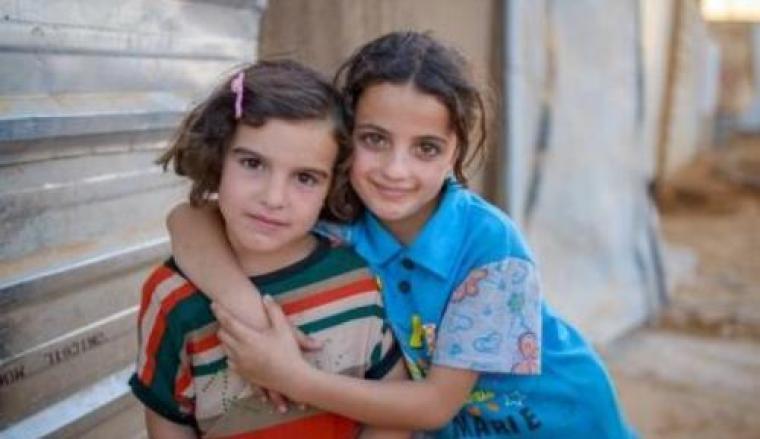
The organizations are so concerned about the situation facing millions of Syrian children that they are uniting behind a call for donor and public support to fund critical education and protection programs to lift Syrian children out of misery, isolation, and emotional and mental distress.
The "No Lost Generation" strategy is being publically unveiled one week ahead of a major donor pledging conference in Kuwait.
A major public engagement campaign under the hashtag #childrenofsyria is also being launched, using social media to enlist influential supporters and public contributors in the run up to the third-year anniversary of the conflict in March. World Vision is backing the "No Lost Generation" initiative with its Stand With Me campaign – that spotlights the challenges facing children.
"Millions of Syrian children are in dire need, out of school, living in extreme vulnerability and we need to stand with them," said World Vision's Regional Leader for the Middle East, Conny Lenneberg. "The world needs to do more to ensure we don't lose a generation of children, with all the terrible long-term implications that could bring."
For nearly three years, Syria's children have been the most vulnerable of all victims of the conflict, say the four organizations, seeing their families and loved ones killed, their schools destroyed and their hopes eroded. They have been wounded either physically, psychologically or both. Children have also become vulnerable to the worst types of exploitation including child labour and recruitment into armed groups and forces.
Over one million Syrian refugees are children, of which more than 425,000 are under the age of five. Most have fled to Lebanon, Jordan, Turkey, Egypt and Iraq. The situation for over three million displaced children inside Syria is even more dire.
World Vision, UNHCR, UNICEF, Save the Children and other partners across the region will channel the $1 billion into programs that, in partnership with governments and local communities, deliver safe education, protection from exploitation, abuse and violence, psychological care and support and offer more opportunities for social cohesion and stability in an already volatile region.
These programs include strengthening national and community-based child protection systems, which respond to the needs of girls, boys and families at high risk of abuse, neglect, exploitation and violence while protecting all children against such risks.
The initiative will also scale up access to quality education, through formal and non-formal approaches, including introducing curricula for children who have been out of school and creating safe environments that reduce children's exposure to further risks.
"Until recently Syrian children were at school, in their homes and protected. Their world has been turned upside down and now many of them face untold hardships and uncertainty. Without strengthened international support Syria's children may never recover," Lenneberg said. "It's critical that we remember the children at the heart of this crisis and refocus our energies by standing with them."
A special website has been established that tells the stories of children affected by the conflict, and shows how investments in children can deliver important dividends, not just for the current victims of the war but for the longer-term future of Syria and the wider region.